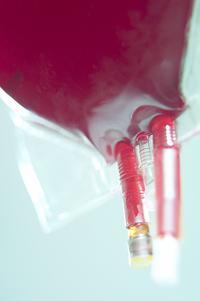Matschiner reveals blood doping techniques
Bernhard Kohl's agent to publish book about his clients



Stefan Matschiner has revealed details of how he helped his athletes carry out blood doping and has promised further revelations about how he helped them cheat in a book he plans to call 'Borderline'.
The Austrian was the agent for Bernhard Kohl, Michael Rasmussen and 20 other high-level triathletes and runners until 2008. He was given a 15-month sentence for doping on Monday and is no longer involved in sport. Kohl is serving a lifetime ban after having tested positive for CERA at the 2008 Tour de France.
Speaking to the New York Daily News, Matschiner insisted he had no regrets about helping riders illegally boost their performance by using refined blood doping techniques.
"I don't regret anything because I can't say I put anyone's health in danger," Matschiner reportedly said during his trial, describing doping as important to elite sports "as breakfast."
He explained how he helped Kohl blood dope, giving details of how he removed blood, centrifuged it to isolate the red blood cells before it was re-injected during key moments in the season.
The bags were about as big as a tube of toothpaste but provided a clear increase in performance.
"It's not a lot of blood, but it gives you a lot of boost," Matschiner said. "Usually the effect comes a day later, supplying the muscle cells with oxygen.
Get The Leadout Newsletter
The latest race content, interviews, features, reviews and expert buying guides, direct to your inbox!
"It's like you have 10 percent more inside. There are some athletes that can immediately go out and feel it. Usually on the first day they don't feel so well. You can compare it with altitude training. For two days you feel like s**t, then a boost comes."
Matschiner argues that blood doping is healthier than taking EPO or nothing at all, considering the physical effort required during the Tour de France.
"You're doing your body a service. It's nothing anybody could cry about," he said.
"With the performances they have to bring every day in a three-week race it's really not an issue.
"You go in with 45 and come out with 37. Don't tell me that's healthy. But if you substitute a little blood, you go from 45 and 43."
Contador's Clenbuterol
Matschiner admitted he was not surprised by recent revelations that Alberto Contador had tested positive for Clenbuterol, suggesting the drug was widely used.
"Clenbuterol in general is something that is quite common in the world of cycling. It's usually orally used on a pretty frequent basis. It's just a guess on my side, but hypothetically, if an athlete takes a very small dose it would help him breathe. The half life is so short that my only guess for a positive case for such a small amount is that he took a little too much."
Matschiner plans to publish further revelations his book in January 2011.
"It's going to be a detailed explanation of what I did. I'll explain everything in detail," he said.

Stephen is one of the most experienced member of the Cyclingnews team, having reported on professional cycling since 1994. He has been Head of News at Cyclingnews since 2022, before which he held the position of European editor since 2012 and previously worked for Reuters, Shift Active Media, and CyclingWeekly, among other publications.